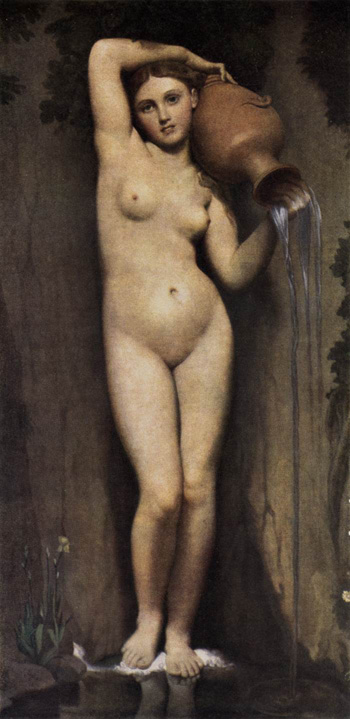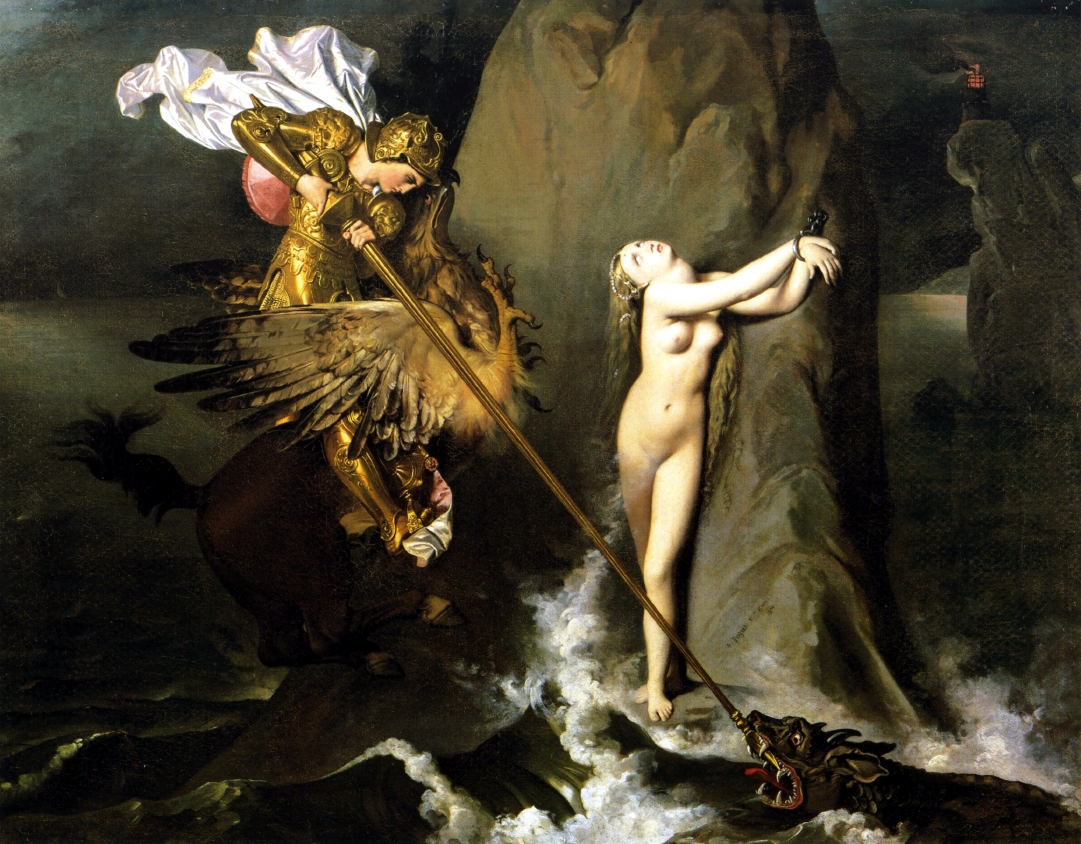The Doctrine of Ingres
From Elizabeth Gilmore Holt, From Classicists to the Impressionists: Art and Architecture in the 19th century (New Haven, Conn.: Yale University Press, 1981), pp.34-38
Jean Auguste Dominuqe Ingres (1780-1867) was perhaps the most influential French artist during his life time. He was a powerful force in the French Academy for Art, and he served for some years as the Director of the French Academy in Rome. He was a strong classicist, who argued for the important of drawing as a preparation for painting, and he strongly opposed the emphasis on color and feeling in painting influenced by Romanticism, such as those of his younger rival, Eugene Delacroix.
Ingres prestige was so great that his students recorded his aphorism about art. These were collected by his student Maurice Denis, and excerpts of his publication may be found below.
Thoughts on Using This Source
Ingres comments, quoted below, can give you a window into the way that 19th century classicists viewed culture. To get at his perspective, here are a few suggestions:
- Pay attention to what Ingres values. Ask yourself, what he likes and want to increase and what does he dislikes.
- Compare his ideas about art with other notions of what produces great art. Ask yourself what models of great art are like today and how these are different from Ingres
- Think about the practical consequences of these views, coming as they are from one of the real powers in the art world. What kind of message is being sent to young artists? What kind of work is apt to received support from the artistic establishment?
- "Love truth because it is also beauty."
- "The name of ideal beauty, so ill-received in our time,
designates only visible beauty, nature's beauty."
- "Art should only depict beauty."
- "Today many artists cry out against compositions, no longer wishing a picture to be arranged. . . . Accidental nature with nothing added, and on it, colours daubed in lumps, those are their principles."
- "Do you believe that I send you to the Louvre to find ideal beauty, something different from that which is nature? Similar idiocies in ill-fated epochs brought about the decadence of art. I send you there because you will learn from the ancients to see nature because they are themselves nature; one must be nourished by them . . ."
- Amaury-Duval reports that Ingres did not wish the word chic pronounced in the studio.
- "To form yourself in beauty, see only the sublime; walk with your head raised to the sky instead of keeping it toward the earth like pigs searching in the mud."
- "The ancients have seen all, understood all, felt all, depicted all."
- "The figures of antiquity are only beautiful because they resemble the beauty of nature. . . . And nature will always be beautiful when it resembles the beauties of antiquity."
- "Greek art proves its superiority by the masterfulness of even the simple artisans, the potters for example. Just the composition of a handsome vase would make a modern
painter illustrious."
- "The masterpieces of antiquity were made with models like those we have at the moment before our eyes in Paris. . . . The secret of beauty must be found in Truth."
- "Study vases, it was with them that I began to understand the Greeks."
- His ideal, wrote Janmot, was to recreate antiquity by the study of nature; also, of his passionate, dominating teaching, only realism remains.
-
"Have, in its entirety, in your soul, and in your eyes, the figure that you wish to represent, and let the execution be only
the realization of this possessed and preconceived image."
-
[Maurice Denis commented:]
To summarize, Ingres taught nature and its translation
through drawing. But drawing is not a copy of the model. Beauty must be sought first. And what is beauty? It is what one discerns by frequenting the Greeks and Raphael . . ."
|

Jean Auguste Dominuqe Ingres, La Source [The Spring](completed 1858) |

Ingres, Ruggiero Rescuing Angelica (1819)
|

